The USAID Food and Enterprise Development (FED) Program and local microfinance institution Liberian Entrepreneurial & Asset Development (LEAD) has provided 120 Liberian farmers with over $1.6 million Liberian Dollars ($20,000 USD) in loans since November 2013.
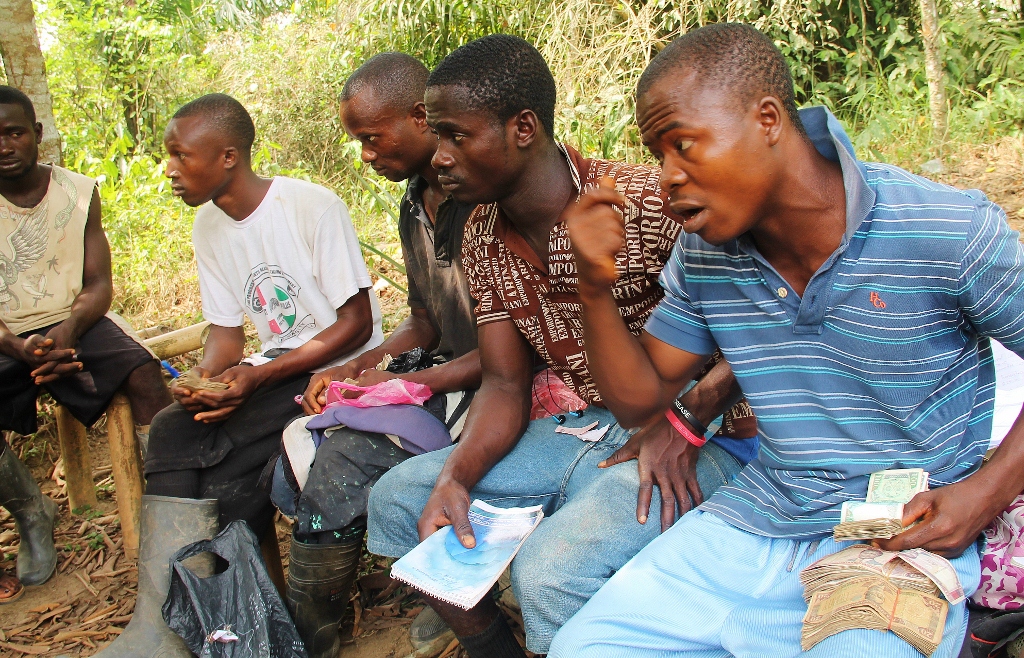
Johnson Harris of the United Farmers Association (UFA) can tell you something about the importance of timing. He bought cabbage seeds back in August 2013 several months before Liberia’s best cabbage growing season around December. It came time to plant, he held an advantage over his fellow farmers who at the time couldn’t afford the better cabbage seeds.
“By the time we were planting, the good seeds were gone. The problem is that the other farmers didn’t have money to buy the good seeds when they were available. Sometimes there’s no money. Every farmer has a family,” explains Harris.
Harris, who studies agriculture at the University of Liberia, harvested 50 bags of cabbage in January 2014 and sold each 50 kg bag at the local market for 3,500 Liberian dollars ($44 USD). The following week, he sold 27 bags of cabbage leaves for 1,500 Liberian dollars ($19 USD) each. His colleagues’ cabbage crops did not come up.
Johnson Harris’s cabbage seeds were helpful, but he did not do it all on his own. With only a small amount of financing, Harris and his fellow farmers have vastly improved their harvests and, as a result, their income. The only problem is that access to finance is hard to come by for farmers like Johnson.
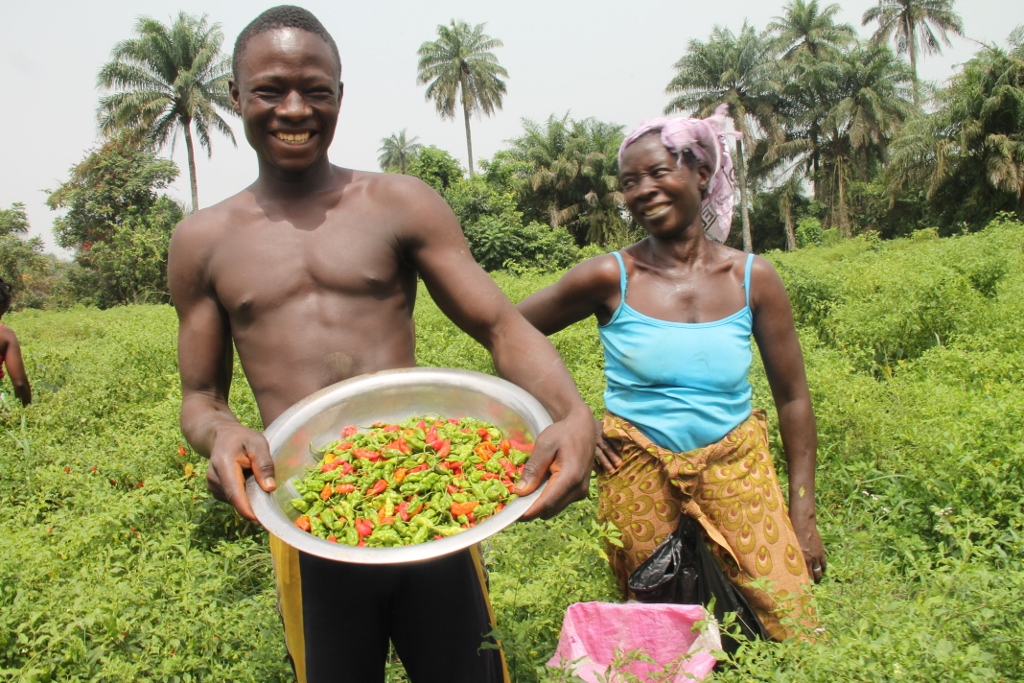
Banks Closed to Farmers
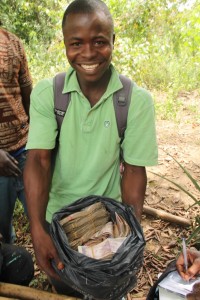
Johnson is a member of the United Farmers Association, a group of 13 farmers who grow vegetables outside of Barnesville in Montserrado County. Each farmer typically farms one to two hectares, and as a group, they plant a one-hectare plot. Most members have years of experience growing food in Liberia’s tropical climate, and in 2013, the group partnered with the USAID Food and Enterprise Development (FED) Program for Liberia to boost vegetable production and increase the farmers’ ability to link with local markets.
USAID FED worked with the farmers to improve field layout, planting and irrigation techniques and provided the farmers with tools and seeds. However, the real catalyst came in October 2013 when USAID FED and local microfinance institution Liberian Entrepreneurial & Asset Development (LEAD) loaned the group $210,000 Liberian dollars ($2,500 USD).
It was the first time any of the farmers had ever been offered a loan. Although there are microfinance institutions operating in Liberia, several obstacles separate farmers from the benefits of borrowing small quantities of capital.
“Banks don’t understand how agriculture works. They see us as poor and helpless. They want assets and don’t know that our assets are our hands and our farming knowledge,” says Alfred Zemaiwelai, the group’s lead farmer. “We are seen as an investment risk and without assets like buildings or vehicles, so we can’t get loans.”
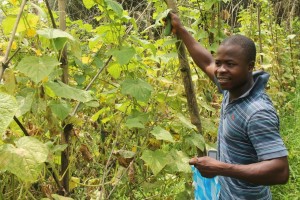
Programs like USAID FED and LEAD are working to change the mentality of farmers and lending institutions by proving that farmers can comply with loan conditions and make significant returns on loans. “The idea that farmers in Liberia are irresponsible is a myth. They work harder than anybody else, and that’s the type of person you want to loan money to,” says LEAD’s National Director, Allen Gweh.
LEAD started making agriculture loans in 2010 and is currently the only microfinance institution in Liberia loaning to farmers. Thanks to positive results and a high repayment rate from nearly 100 farmers, LEAD is helping redefine what Liberian farmers are capable of producing with fresh capital. Through its partnership with USAID FED, LEAD will now have the ability to reach hundreds of new farmers over the next two years.
LEAD’s agriculture loans are disbursed through Liberia’s Central Bank and come from the United States African Development Foundation (USADF). Since 2010, LEAD and the USADF have provided over 245,000 USD in agriculture loans. A total of 120 USAID FED farmers have received $1.6 million Liberia Dollars ($20,000 USD) in the last six months.
“The loans may be small but very meaningful to farmers and under-served communities. The story of the United Farmers group, mostly young farmers, has the ability to motivate Liberia’s youth to become productive, particularly in agriculture,” says Peter Hne Wilson, Country Program Coordinator of USADF/Liberia Program.
Loans For Progress
Each UFA farmer received $16,150 Liberian dollars (approximately $200 USD) and used the loan to purchase agriculture inputs. Some purchased manure from a slaughterhouse in Monrovia while others bought chemical fertilizers at the market. As a group, the farmers also used a portion of the loan to upgrade their farming tool kit with new water hose, watering cans, spray cans and machetes.
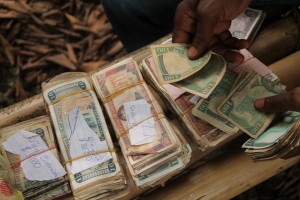
Perhaps most important, each farmer could afford to pay laborers to help them work the fields. Additional labor in field preparation, including clearing and plowing by hand, allowed the farmers to plant larger areas. Laborers also assisted the farmers with transplanting seedlings, watering, weeding and ultimately harvesting.
Daniel Kollie is married with 9 children. Instead of putting the children in the field, he paid laborers to help him. In January and February, he harvested and sold 24 bags of pepper and cucumber at the market earning more than 95,000 Liberian dollars, essentially six times the amount of the loan.
In April 2014, the group repaid the loan in full, in addition to 16% interest, totaling 250,000 Liberian Dollars ($2950 USD). The 13 farmers averaged profit margins of $895 USD, while Johnson, the most successful farmer, made $408,250 Liberian Dollars ($4800 USD).
“In farming, if you can’t get the timing right, you keep trying. We gamble each time, but we keep playing, get better and hopefully we will hit the jackpot!” says Daniel Kollie.

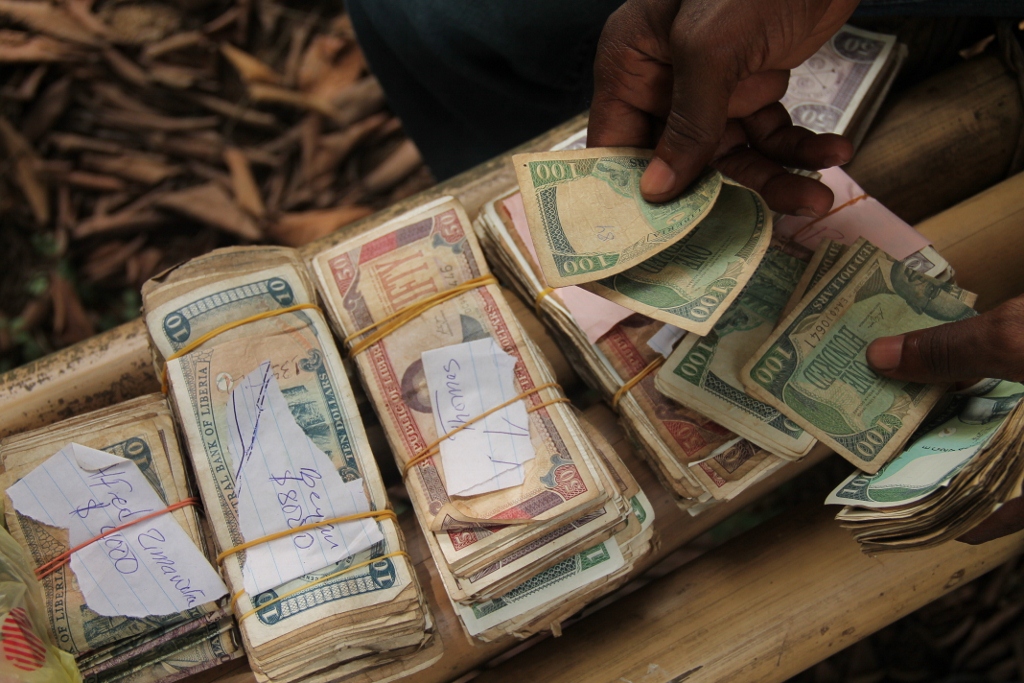
Farmers in Liberia have depended on subsistence farming for too long which is not carrying us no where in terms of ending hunger and alleviating poverty. In changing this concept we will like to see a more robust support to farmers who are planning farming on a more larger mechanize scale we need your support.
Agriculture is the future of Ma Liberia. Fine to see the farmer getting financial service.